It was the spring of 1986, and 18-year-old Marda had her life all mapped out: first, high school graduation, then nursing school. She had a great future planned.
But then life happened, and those plans started to crumble.
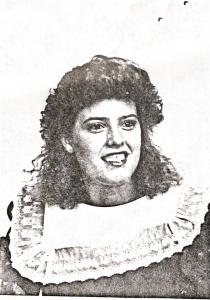
In April, her brother suffered a traumatic brain injury. Her family was stressed, fragmented. With her parents distracted, Marda and her sister were more or less left to their own devices. She began to veer off the course she had planned for herself and started hanging around with “the wrong crowd.” And, just three months after her high school graduation, she got the news that would change her life forever: she was pregnant.
Marda remembers the millions of questions that ran through her mind. What am I going to do? What are my parents going to say? Am I ready to be a mom? How am I going to support my child?
What am I going to do with the rest of my life now?
She kept the pregnancy hidden from her parents for several months, struggling with the weight of her secret and the decision of what she was going to do next.
And then Marda started to make a new plan for her future — one to give her baby the best life possible, even if she wasn’t in a position to provide it herself.
A Contentious Decision
Being raised Mormon, Marda says her religion played a large part in her feelings about her pregnancy — and, eventually, her parents’ feelings about her pregnancy, too. She kept it quiet until she couldn’t anymore, when she really started to show and had no choice but to come clean to her family.
Her parents were shocked. They worried about what their friends and neighbors would think. And they were torn; for weeks after Marda told them, she watched them argue over what she should do. Marda’s mother wanted her to raise the baby. Her father thought she should place the baby for adoption.
“For me, it was very contentious, because I could feel the two sides,” Marda says. “It became very much an emotional journey for all of us.”
In the end, Marda’s parents could agree on one thing: It was ultimately Marda’s decision to make. And Marda knew that the best decision would be placing her son for adoption.
“I wanted my child to have the best chance at the best life that he could possibly have, and I knew at that time, being 18, there was no way I could provide that to him,” she says. “I loved him enough to give him life, and I loved him enough to give him up so that he could have that chance.”
Pushing for Openness
The adoption process of the 1980s was different from the process we know today. While the idea of open adoption had just started to emerge, it was still a rarity. At the time, the vast majority of adoptions were kept closed; prospective birth mothers rarely had the opportunity to know the adoptive parents, and adopted children didn’t have access to their birth family when they had questions about where they came from or why adoption was chosen for them.
Marda wanted something different.
She had heard about open adoption on TV — talk shows that mentioned this new style of adoption, which allowed birth parents to receive updates about their children and left avenues open for adoptees to find their birth parents later in life.
“I wanted it to be an open adoption; that I knew for certain,” Marda says. “If my child ever wanted information when he grew up and reached a certain age, to find out why I did what I did, I wanted that option to be open to him. Back then, most of the places I was checking into were very much pushing for a closed adoption. And I was just not going to do that.”
Marda met with a number of church agencies and other social services in her area, searching for a professional that would arrange an open adoption. They all told her no — that the adoption had to be kept private, that everything would be sealed. So, Marda refused to work with them.
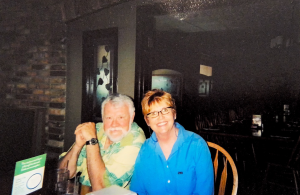
When they had exhausted all of their options for local agencies, Marda and her parents were at a loss with where to turn next. But she had made up her mind: It had to be an open adoption. And that’s when they decided to go a different route. They contacted her uncle, a family law attorney, and asked if he could help.
‘The Best Decision I’ve Ever Made’
It didn’t take her uncle long to find a family who was willing to have a more open adoption. They wouldn’t meet before the adoption, identifying information would be kept confidential, and all contact would be mediated by Marda’s uncle, but they were willing to send her updates after the adoption.
Marda’s uncle told her about the family: It was a second marriage for both of the parents, and while they had children from previous marriages, they had tried for several years and couldn’t get pregnant again. The family was well-off, and Marda knew that her son would grow up with brothers and sisters. So, she agreed.
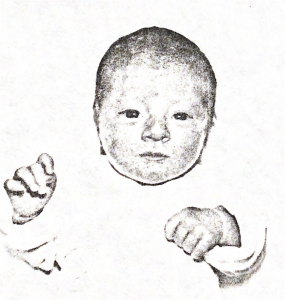
When her son was born — Joshua, the adoptive parents named him — Marda spent a couple of precious days with him in the hospital. She held him, wrote him a letter and a poem, gave him things that she hoped would remind him of her.
“I never wanted him to think I didn’t love him,” Marda says. “That wasn’t why I was doing it. I wanted the best life for him that I could give him, so I made sure that when I let him go that there was never that question.”
And, as far as Marda knows, there never was. Her son had the life she hoped for him, and then some.
“As difficult as it was, it was probably the best decision I’ve ever made,” she says. “He was loved unconditionally. He was spoiled rotten because he was the baby, and he had every opportunity provided to him. He was given opportunities that there’s no way that I, as a single young mom, could have ever done for him.”
The adoptive parents followed through on their promises to keep Marda up to date. They sent her pictures and updates — not all the time, Marda says, but enough to let her know that she had made the right decision.
And then, when Joshua was 18, Marda got the call from her uncle: Joshua wanted to meet her — would she like to meet him?
Filling a Void
Marda was nervous. Extremely nervous. On her way to the meeting, a million questions ran through her head: What does he look like? Is he going to like me? What’s he going to think about me?
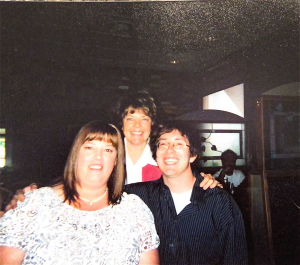
As it turned out, she had nothing to worry about.
“I walked into the restaurant, and the first thing I remember his adoptive mom saying was, ‘Oh my gosh, Joshua — that’s your mom right there,’” she says. “It was just like looking in a mirror…It was just a feeling of completeness, reassurance that I knew I had done the right thing when I was 18 years old.
“I think it filled a void for him, and it certainly filled a void for me.”
Today, Marda is still close with Josh, who is married and has two sons of his own. She calls them often to check in on them, and she makes sure to visit whenever she’s in town. She’s close with other members of his family, too — especially his mom.
“A lot of people think it’s really strange. They’re like, ‘You’re friends with your son’s adoptive mom?’” Marda says. “But we have a really good relationship. She is an amazing woman, and I just love her to death. I consider her my second mom… It’s just one of those things where you pick up the phone, and it’s like a long-lost relative for me.”
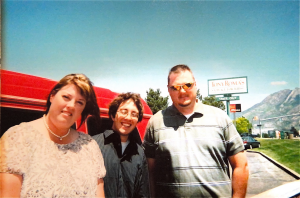
Marda’s other children have had an opportunity to get to know Josh’s family as well, and she says her grandchildren get together often for birthday parties and the holidays.
“It’s amazing,” she says. “Out of something that was so unplanned, it’s been an amazing journey. I have a second family, basically.”
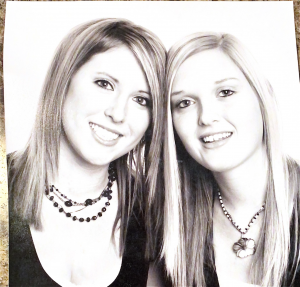
Reflections on Adoption — Three Decades Later
Today, Marda has been married for almost 30 years. Counting Joshua, which she always does, she’s a mother of four, and she has six grandchildren. She recently started her own company as an independent dispatcher, and another as a broker, securing additional contracts for owner-operators.
Looking back, she is more certain than ever that she made the right decision — for herself and for Joshua.
“I just feel like [adoption] allowed me to grow and develop a little bit further instead of being rushed into being a mom,” she said.
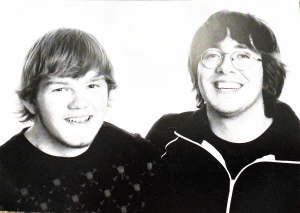
With so many more options available today, Marda would urge other young women to seriously consider adoption, rather than rushing into parenthood before they are physically, financially and mentally set.
“Once you become a mom, your whole mindset, your whole life, changes,” she says. “You are living and doing everything for everybody else, and along the way, you lose yourself…Being a young mom, it forces young kids to grow up to a point that they lose themselves without experiencing life.”
Instead of losing herself, she gave herself the time and space she needed to grow up, while also giving Joshua an amazing family, and a wonderful life.

Want to share your adoption story with American Adoptions?
Email us at editors@americanadoptions.com!


